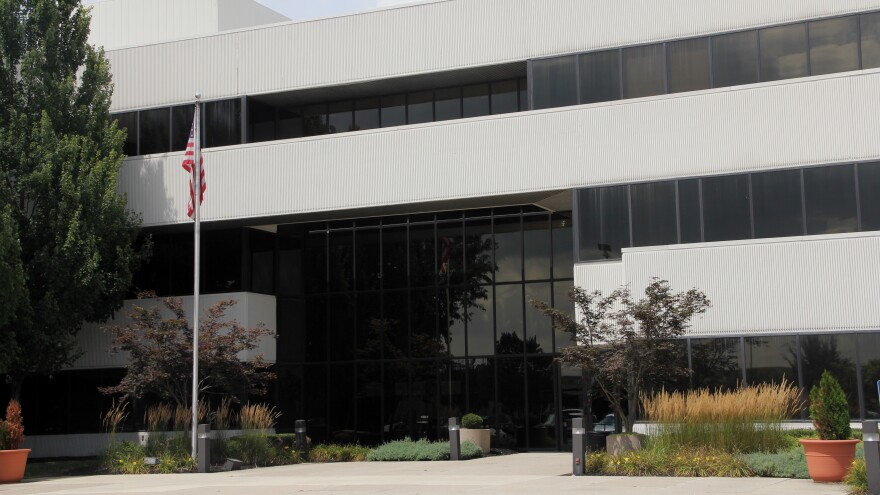Columbus has close ties with many countries, but very few countries have formal offices in the city.
Columbus has 10 sister cities that stretch from Tainan City, Taiwan, to Odense, Denmark and Curitiba, Brazil. Despite the sister city agreement that aims to foster relations and exchange opportunities, none of those countries have consulates in Columbus.
Just two countries, which do not have sisters cities with Columbus, have consulates in central Ohio: Guatemala and El Salvador.
El Consulado General de Guatemala is tucked at the back of the big, brick Hamilton Commerce Center in the Eastland area. Inside, signs, mostly in Spanish, give information on document renewals, travel, and more.
Guatemalan citizens in Ohio go there to register births, marriages and deaths, renew passports or get legal assistance.
El Consulado de El Salvador — El Salvador’s 29th consular office in the U.S. — opened on Columbus' far north side this June.
Why do those two countries have offices here and no others? Well, the answer is simple: they chose to be here.
“Really, it's about a location first. Like where will this consular post be in the United States?” said Cliff Seagroves, acting director of the U.S. Department of State’s Office of Foreign Missions.
Seagroves said foreign governments need permission from the United States to set up a consulate, but the U.S. rarely denies a request. There are some countries that do not have diplomatic relationships with the U.S., including Iran and North Korea, but throughout the U.S., dozens of other countries have more than 570 consular offices.
“I think of a consul sort of as a branch office of that sort of embassy headquarters in a country. So, they do almost all the same things. It's just not done in the capital of the country," Seagroves said.
Embassies and consulates have the same goal: to represent the interests of their countries.
“That could be political interest, that's cultural interest, trade interest," Seagroves said.
Those interests — and where citizens of foreign countries live — are often how countries decide where to put their consulates.
El Salvador’s new consulate in Columbus, for example, is set to provide services to over 17,000 Salvadorans living in Ohio and Michigan who otherwise would have had to travel to Chicago or Virginia.

Honorary consulates
Columbus also has several honorary consulates that help facilitate business and travel. An honorary consul is a person — a U.S. citizen or green card holder — that represents a foreign county’s interests.
“It allows foreign governments to nominate someone to represent their interests in a particular region or city without the expense of having to locate that person here," said Seagroves.
Ohio has almost 40 honorary consulates.
In central Ohio, there are representatives of Mauritius, Germany, Namibia and Japan.
“We know that living within sort of Michigan and Ohio, there's probably about 25,000 Japanese nationals," said David Cook, the honorary consul of Japan in Columbus since 2017.
Cook isn’t Japanese, but he’s spent almost four decades working with Japanese companies and has made many trips to Japan. As an honorary consul, he supports the Japanese consulate in Detroit, which opened in 1993.
“I think the business considerations are what sort of drove the establishment of that consulate in Detroit. And it made sense because of the big three and the auto industry," Cook said. That office initially had responsibility for Ohio, but because of the distance, it was easier to have to an additional consular official in Ohio.
Here, Cook works with Honda and other Japanese-based companies.
"We work closely with Jobs Ohio and with One Columbus and with the individual cities, whether that's city of Columbus or Dublin or Marysville or those cities that have close connection to Japanese-related companies," Cook said. "So, we foster economic, commercial, cultural, and scientific relationships, as well as educational relationships."
Cook supports the Japanese language school in Worthington, and helps Ohioans learn about Japan.
He isn’t paid for his consul work. He considers himself more of a goodwill ambassador.
“You know, I don't have diplomatic immunity that allows me to speed through Columbus or anything, but (this is) just an opportunity to sort of foster that relationship between the U.S. and Japan," Cook said.
Cook notes that most of Ohio’s honorary consulates are not located in Columbus. With the exception of a few outliers, like the consuls for Belize and Lesotho in Dayton and the consul for Iceland in Youngstown, plus a few in Cincinnati, Ohio's honorary consulates are in Cleveland. Cook thinks that may be because Cleveland historically was a manufacturing city, and it would have made sense for countries with business interests to place a representative there.
He said, however, that as Columbus grows and makes more international connections, that could change.
“I just think that, over time, as people internationally understand more about Columbus, we'll have that opportunity for more consular officials here," Cook said.
In the meantime, the consulates that are here will continue to help foreign nationals living in the area, share culture, and build relationships.




